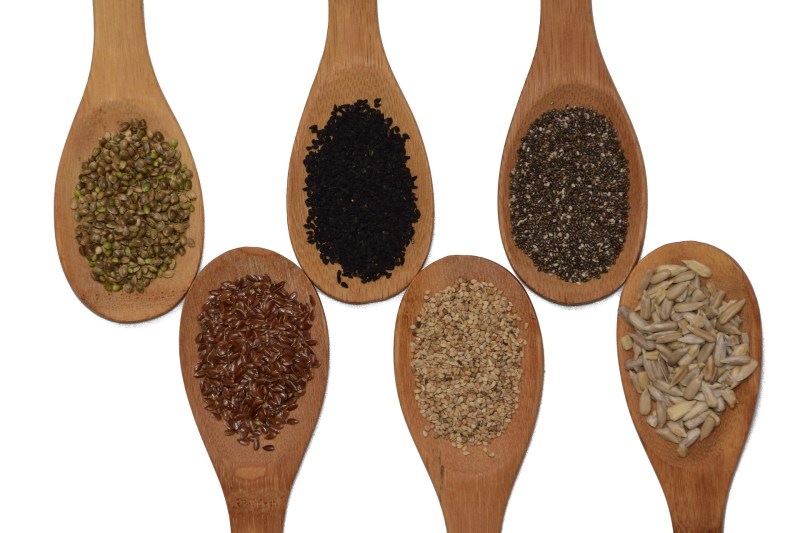
Popular health superfoods such as chia seeds and flaxseeds are often praised for their many benefits. From improved skin health to reduced cholesterol levels, health and fitness experts often recommend incorporating these so-called “magic foods” into your diet.
While it is certainly true that these foods contain many important vitamins and minerals, not everyone should rush to consume high quantities of these popular foods. Although foods such as chia seeds have great anti-inflammatory properties and contain a high level of beneficial antioxidants, they could cause more harm than good in certain situations. For example, people with known food sensitivity may want to avoid these superfoods. Here’s why.
What are superfoods?
The term superfood is often thrown around in the health space without a clear definition. There are no clear, defining guidelines as to what classifies a food as a superfood. However, most health experts agree that superfoods, such as cranberries or goji berries, are foods that have a number of health benefits. These “health benefits” can vary depending on the type of food.
Should everyone consume superfoods?
Although health and food products may be labeled with the term “superfood,” you’ll want to clearly read ingredient labels to discover what’s truly in a product. Superfoods can be a part of a healthy, well-rounded diet; however, those with food sensitivity should take extra caution. Recent research suggests that certain superfoods can cause a spike in IgG antibodies, which are released by the immune system. These adverse reactions could take place in people who have a food sensitivity to certain ingredients, causing uncomfortable symptoms instead of the health benefits they claim.
Every person will react differently to specific foods, which is why a food sensitivity test is a great place to start. Testing for food sensitivities will help measure a person’s individual IgG antibody response, helping to fine-tune the superfoods they can comfortably consume. According to one recent study, experts estimate that every one in ten adults is likely to have a food sensitivity response to at least one food.

What symptoms does food sensitivity cause?
The symptoms of food sensitivity to a superfood vary from person to person. However, people who are sensitive may experience uncomfortable GI symptoms such as gas, bloating, or diarrhea. In addition, other common symptoms include fatigue, brain fog, heartburn, and joint pain. People who experience these symptoms after consuming “superfoods” are best off avoiding these foods and consuming other nutritious and healthy foods that do not cause symptoms.
Most common superfood sensitivities and alternatives
According to a recent test by Yorktest, chia seeds are one of the most common superfoods that can elicit a response in those with food sensitivity. Chia seeds offer great health benefits, such as high levels of omega-3 fatty acids and healthy fiber levels. However, nearly 8.9% of people in the study reacted negatively to these tiny health food seeds. Other common superfoods that may cause food sensitivities include goji berries, green tea, cranberries, and flaxseeds.
If you’re sensitive to one or more of these superfoods, there are many great health food alternatives you can safely enjoy. For example, raspberries and strawberries can be used instead of cranberries, and pumpkin seeds can be substituted for flaxseeds. Investing in a food sensitivity test is the best way to determine which superfoods you should and shouldn’t consume.



